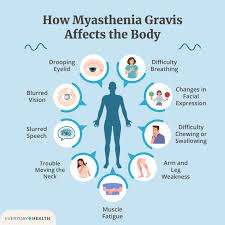In today’s fast-paced, demanding world, faith communities serve as critical sanctuaries for connection, reflection, and renewal. Among the many ways people gather in these communities, Bible study groups stand out as powerful spaces for spiritual growth. But what if these groups could also help nurture something equally vital—our mental health?
As conversations around emotional well-being become more mainstream, many young professionals, eco-minded individuals, and health-conscious people are seeking holistic spaces where spiritual and mental health can co-exist. Integrating mental health awareness into Bible study groups is not about turning them into therapy sessions—it’s about creating environments where faith and emotional wellness reinforce one another.
Let’s explore how Bible study groups can evolve to support mental health, and why doing so is not only compassionate but deeply aligned with spiritual principles.
Why Mental Health Belongs in Bible Study
Yet, in many religious settings, conversations about anxiety, depression, burnout, or trauma have often been sidelined or oversimplified.
But the truth is, the Bible is filled with raw emotional expressions—grief in the Psalms, anxiety in the Gospels, exhaustion in the prophets. From David to Elijah, from Job to Jesus, we see stories of real human struggle, emotion, and healing.
Integrating mental health into Bible study groups can:
Foster deeper trust and openness
Create space for healing and growth
Strengthen community bonds
Destigmatize emotional struggles
Support faith through difficult seasons
In short, it helps Bible study become not just a place for intellectual engagement, but for whole-person transformation.
Starting with Compassionate Conversations
You don’t need to be a mental health professional to foster a healthy, emotionally aware Bible study group. Often, it begins with a shift in culture—one that values listening, empathy, and honesty.
Here are a few ways to begin:
1. Normalize Mental Health Check-Ins
Before diving into scripture, take a few minutes to ask how everyone is doing—not just spiritually, but emotionally. These simple check-ins can make members feel seen and valued. Phrases like:
“How has your heart been lately?”
“What’s been weighing on your mind this week?”
“Is there something we can hold in prayer together?”
…create an atmosphere of openness.
2. Use Scripture to Address Emotional Realities
Select passages that explore themes of struggle, endurance, and restoration. For example:
Philippians 4:6-7 – A passage on anxiety and peace.
Invite group members to reflect not just on theological meaning, but how the verses resonate with their current emotional state.
Structuring Bible Study with Mental Health in Mind
A small change in structure can make a big impact. 
1. Create a Safe Environment
Psychological safety is essential. Encourage group norms like confidentiality, non-judgment, and mutual respect. Make sure everyone knows that it’s okay to not have everything “figured out.”
2. Include Reflection and Stillness
Instead of rushing through readings and discussion, include quiet moments for personal reflection or guided journaling. A few minutes of silence can offer space to process thoughts and emotions.
3. Introduce Wellness Practices
Simple wellness elements like deep breathing, stretching, or gratitude exercises can help participants feel more grounded. These practices are especially helpful for health-conscious and mindfulness-oriented members.
Example: Open your session with a one-minute breathing exercise or end with a gratitude circle where everyone shares one thing they’re thankful for.
4. Recommend Resources
Provide supportive resources such as mental health apps, local counseling centers, or faith-based wellness platforms like https://mindzo.us/, which offers accessible tools for reflection and emotional support.
Addressing Common Concerns with Care
While integrating mental health into Bible study can be enriching, some may feel unsure or hesitant—worried it might “dilute” the spiritual focus or overstep boundaries.
Here’s how to navigate that respectfully:
Clarify Intentions: Reassure the group that the goal isn’t therapy but building emotional awareness within a spiritual context.
Stay Anchored in Scripture: Keep Bible passages at the center of discussions while allowing space for emotional processing.
Avoid Diagnosing or Advising: Respect that not everyone may feel comfortable sharing deeply, and avoid offering unsolicited solutions.
By balancing these elements, you can create a group that honors both scripture and the lived experiences of its members.
Why This Matters for Today’s Faith Community
Young adults today are navigating unprecedented levels of stress—from economic uncertainty to climate anxiety. They’re also more likely to seek authentic spiritual experiences that acknowledge their emotional realities.
Health-conscious and eco-aware individuals are often drawn to holistic practices that honor the mind, body, and soul. Bible study groups that integrate mental health naturally align with these values—offering a space where wellness and faith walk hand-in-hand.
In such a space, participants are reminded that God meets them as they are—not as who they think they “should” be. And that can be a powerful source of hope.
Practical Tips to Get Started
Host a “Mental Health and Scripture” themed study once a month
Invite a guest speaker or counselor for a special session on faith and emotional well-being
Create a resource table with books, hotline numbers, or journal prompts
Use group prayer as a tool for emotional release, not just request-gathering
The key is consistency, gentleness, and openness. No big programs required—just willing hearts and thoughtful facilitation.
Final Thoughts: A Faithful, Whole-Hearted Journey
Integrating mental health into Bible study groups is not a trend—it’s a natural extension of loving one another well. By weaving emotional wellness into faith gatherings, we create sacred spaces where people feel truly seen, heard, and supported.
In doing so, we reflect the heart of scripture itself—a story not just of salvation, but of healing, compassion, and wholeness.
So whether you’re a group leader, a participant, or someone considering joining a study for the first time, know this: bringing your whole self—heart, mind, soul, and emotions—is not only welcomed, it’s sacred.